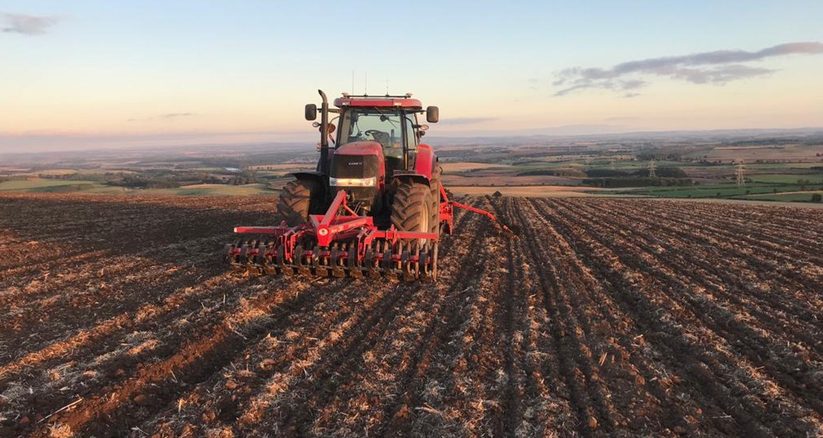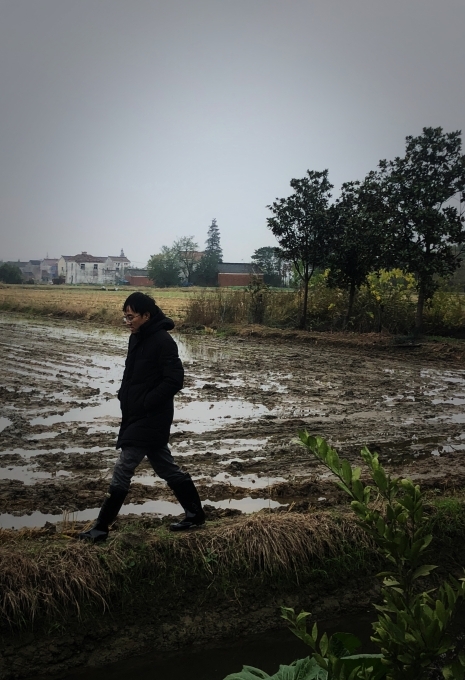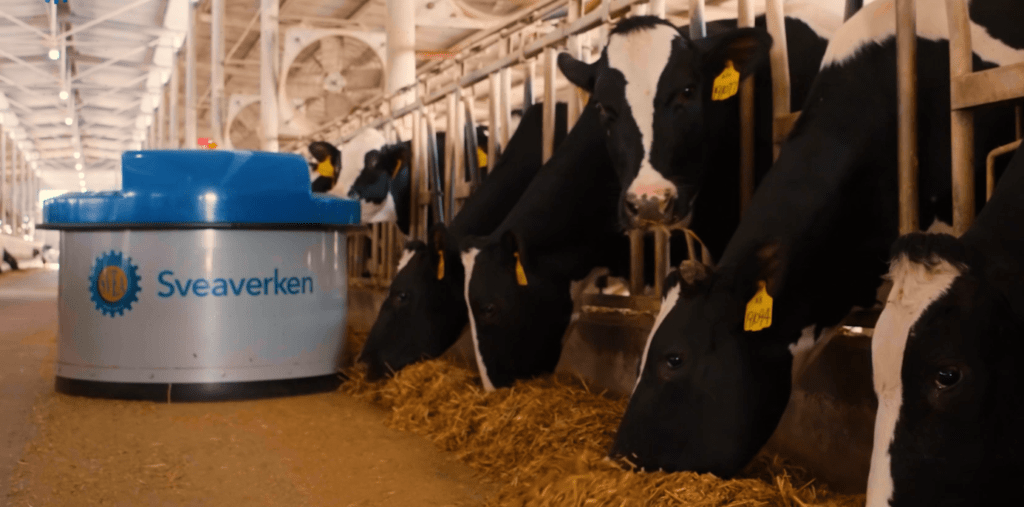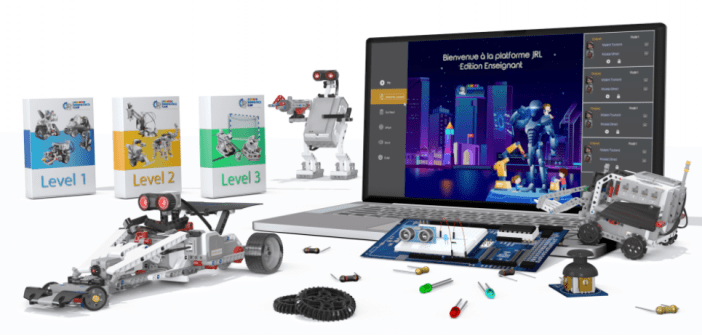FJDynamics, a robotics business, raises $70 million to make manual labor easier

FJDynamics, created by DJI’s former head scientist Wu Di, has secured a $70 million Series B round to further its objective of empowering workers in the hardest environments with robotic technologies.
When I asked Wu what makes his company’s farming robots unique, he responded in a way that would make any PR sweat: “I don’t think our technology is very unique.” According to him, the startup’s mission is to create useful and affordable robots for the most labor-intensive industries.
“You can have the most advanced AI algorithms,” he said, “but how can your technology serve people if it doesn’t operate on the manufacturing line or the farm because you don’t have any industry experience?”

Wu’s previous projects before FJDynamics were cutting-edge in every way. He was the chief scientist at DJI and handled the drone company’s 2017 acquisition of the Swedish format camera maker Victor Hasselblad AB. He spent a decade in Sweden before returning to China, where he got a PhD in domain-specific processor design. He was also a vice president at Coresonic AB, a fabless semiconductor business, and a director at Koenigsegg AB, a Swedish premium sports car manufacturer.
“After witnessing all of these first-class technologies, it’s a stretch to say we [FJDynamics] are a high-tech firm,” remarked the founder, who was dressed casually in a slightly faded checkered shirt and thin-rimmed glasses on the morning of our interview.
We were sitting in an improvised conference room, a divider made up of a few desks divided from the rest of the open-plan workplace by movable walls. The company, based in Shenzhen’s thriving tech sector, was rapidly expanding and approaching 1,000 people.
Wu quit DJI in 2019 to launch FJDynamics. The company began by focusing on agricultural robotics, developing products such as unmanned lawnmowers, orchard sprayers, and feed pushing machines. It has now expanded into other industries that rely significantly on manual labor, such as building and manufacturing.
As Beijing pushes for a digital transformation of the country’s traditional industries, Chinese firms such as FJDynamics are in high demand among investors. FJDynamics has attracted a slew of major investors, including Tencent and the state-owned automaker Dongfeng Asset Management. DJI had an early shareholding in the company but has since sold its shares.
It declined to reveal its only investor in its most recent Series B financing, stating only that it is a large Chinese internet giant. According to the company, the money would help it to “expand its suite of robotics automation technology across agricultural, facilities management, construction, and gardening, as well as support the company’s ESG product offerings in over 60 countries.”
Over the years, a slew of tech talent has left DJI to launch their own businesses or join the ranks of others’ budding initiatives. Among the most well-known are EcoFlow, a manufacturer of portable batteries, Zuvi, a manufacturer of hairdryers, and Evowera, a manufacturer of electric toothbrushes. Wu’s decision to leave a prominent position at the world’s largest drone firm was motivated by a sense of detachment he felt while working on “luxury” goods.
“When you look at how robotic technology is being used, you’ll notice that a lot of companies are adopting drones and autonomous vehicles.” However, the vast majority of people on the planet are not profiting from it.”
“Agriculture, building, gardening… Work conditions in these industries are physically hard, yet there are still a lot of us doing it. “The question is how we employ robotic technology to better their work environment, which does not mean just replacing them with robots,” the entrepreneur explained.

The automated feed pusher is a popular product from FJDynamics. Cows must be fed ten times per day in order to produce high-quality milk. The pattern necessitates farms having workers on-site 24 hours a day, seven days a week. A farm with 500 cows, for example, requires around three grass feeders to work shifts. Farms in poorer countries, on the other hand, cannot afford to hire as many personnel, and staff may stay out tending to the cows all day, even during the coldest season.
FJDynamics’ goal is to make farming easier. Its vision-guided feeder, which costs around 20,000 euros per unit, has the capacity to feed up to 500 cows every day. It purchased the 110-year-old Swedish farming company Sveaverken in 2019, which has helped put the Chinese company’s feed pushing robots to work.
“I never discuss technology with my customers.” “The farmer is more interested in whether my product will help increase agricultural productivity,” Wu explained. “Every farmer is a businessman.”
Because of the company’s mission of “making technology affordable,” margins are “limited,” and management is conscious of operational expenditures.
At the moment, over 40% of the startup’s sales are made outside of China, in over 60 countries. Many Chinese enterprises operating abroad are becoming increasingly evasive about their origins, anticipating opposition toward anything labeled “Chinese.” Wu adopts a more assertive stance.
“I can’t rip off my skin despite having lived in Europe for ten years.” I don’t think it matters whether the entrepreneur is Chinese, American, or Swedish… There will be users as long as you produce outstanding products and provide benefits to my consumers.”
Data compliance is especially important when it comes to a company’s global expansion. FJDynamics offers the gear and software, while its local partners assist in the deployment of the “system” based on the data. Outside of China, Microsoft Azure is its primary cloud partner, allowing for “elastic deployment while addressing data privacy regulations such as GDPR.”
“It’s in our culture not to want the data,” Wu explained.
Unlike smartphones or drones, which require complex processors, FJDynamics’ devices employ relatively simple chips that can be bought in China, thus the company is likely immune to current supply chain delays, according to the founder.
While Wu may no longer be working on cutting-edge technology, he is always looking for new methods to share his knowledge. When he isn’t working on the next farming robot, he teaches at Shenzhen’s Southern University of Science & Technology.
“I live a simple life that focuses on two things — product [FJDynamics] and education,” the founder said. “I’ve seen a lot and realized that money can’t change you or make you happier. So you need a simple goal, and achieving the simple goal makes your life happier.”







